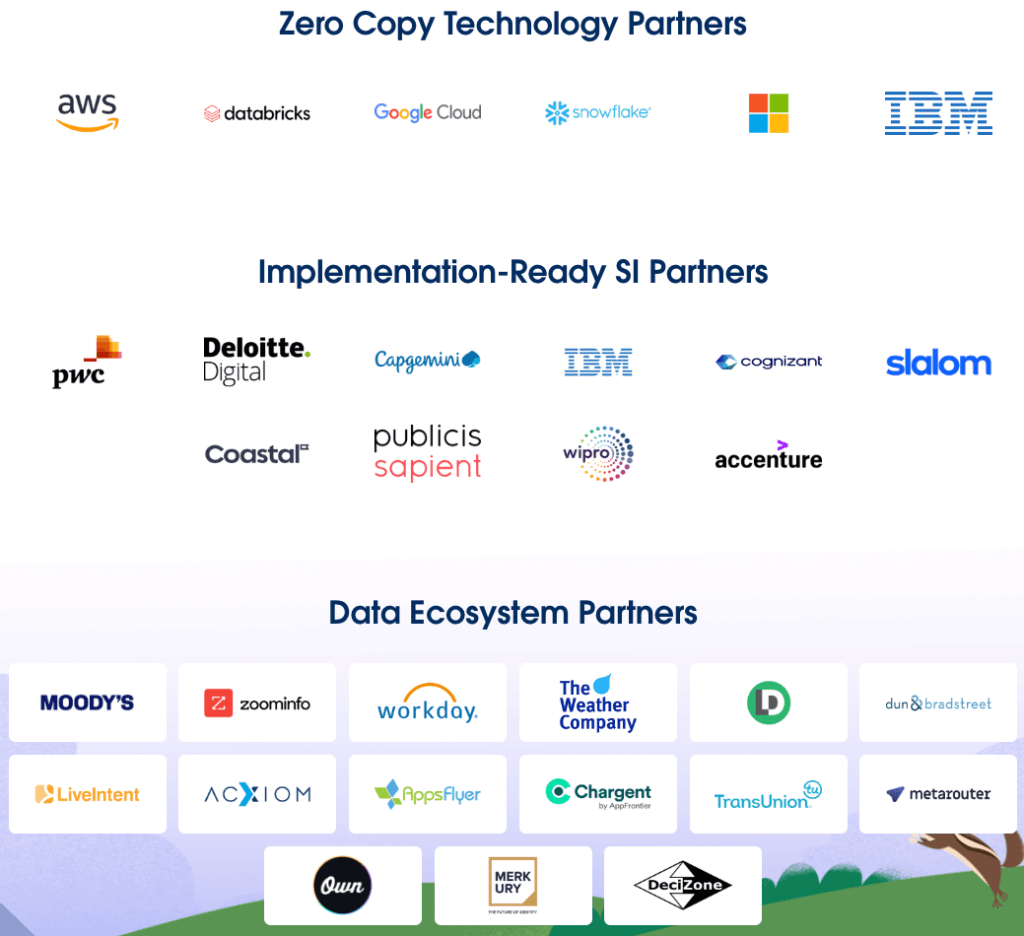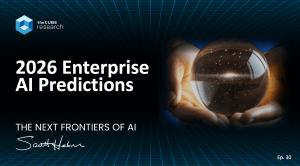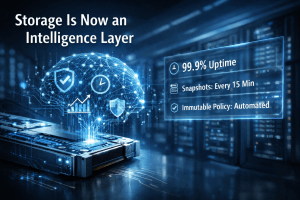ABSTRACT: Salesforce is advancing its platform with AI-driven automation powered by AI agents, a robust Data Cloud, and Kubernetes infrastructure. This research note delves into Salesforce’s strategic shift towards a platform that integrates with other clouds while leveraging a vast ecosystem of ISVs, GSIs, and strategic partners. The article explores the importance of Salesforce’s Data Cloud, which harmonizes real-time and historical data, and highlights how key acquisitions, such as Own Company, enhance data protection and governance. Additionally, it discusses Heroku’s role in simplifying AI agent deployment and the critical transition to Kubernetes for scalable, multi-cloud flexibility. As Salesforce continues to evolve, its ecosystem of partners, developers, and cloud providers is central to its success, making it a key player in the future of AI-powered business automation.
At Dreamforce 2024, Salesforce laid out an ambitious vision that redefines its role as a cloud-based platform provider, emphasizing AI-driven automation, robust data management, and abstracted infrastructure. The company focuses on becoming a platform for customer relationship management (CRM) and an integrated system for AI agents and advanced cloud capabilities that sit atop other cloud platforms. Salesforce’s strategy revolves around three pillars: the development of AI agents, the role of its Data Cloud, and the evolution of its infrastructure. Through these efforts, Salesforce seeks to transform how businesses automate workflows and utilize data, creating a potential competitive edge in the era of AI.
Automating Business Processes with AI Agents
A key highlight of Salesforce’s strategy is the development of AI agents, task-focused AI assistants that are different from typical bots and designed to streamline and enhance business processes in previously unachievable ways with traditional automation. While AI-powered assistants like co-pilots have been around, Salesforce is now shifting its focus to more sophisticated, task-specific agents. These AI agents aren’t just tools to assist users but are designed to take over entire business processes such as revenue recognition, sales campaign management, and focused customer service workflows.
Salesforce aims to turn its platform into a foundational system upon which other companies can build, customize, and scale AI agents. This aligns with its broader vision of empowering users through a low-code or no-code environment, where even non-technical business users can develop and refine AI agents to meet specific operational needs.
What makes Salesforce’s approach unique is the platform’s ability to allow AI agents to interact with customers and other agents and Salesforce applications, creating an interconnected web of business process automation. These agents can learn from data, and teams can adjust their operations over time by using and updating “tasks,” which positions Salesforce as an essential partner for businesses looking to automate at scale. This is something that has a roadmap to be much more automated in the future.
However, Salesforce intends to avoid the narrative that AI will replace human workers. Instead, Marc Benioff, CEO, David Schmaier, President and Chief Product Officer, Muralidhar Krishnaprasad, President and CTO, Einstein1, Data Cloud, MuleSoft and Tableau, Alice Steinglass, EVP and GM, Salesforce Platform, and other Salesforce executives emphasized during Dreamforce, the company’s AI agents are designed to enhance human productivity. In a challenging economy where talent is scarce and expensive, AI agents help human workers focus on more complex, creative tasks while automating routine, repetitive ones. This human-AI partnership is central to Salesforce’s narrative, framing AI as a means of augmentation rather than substitution.
Data: The Engine Behind AI Agents
The success of Salesforce’s AI agents hinges on the capabilities of its Data Cloud, which serves as the backbone for all AI-driven decision-making. The Data Cloud is designed to federate, aggregate, and harmonize data from customer interactions, sales data, external databases, and more into a cohesive and unified system. This centralization is critical because AI agents require massive amounts of structured, high-quality data to function accurately.
One of the most significant innovations within Salesforce’s Data Cloud, built-in by design, is its opinionated data format. By standardizing data structures, Salesforce ensures businesses can more easily work with the platform’s AI tools without needing to reformat or reorganize their data. This structured approach is a double-edged sword: on the one hand, it simplifies integration and usage, but on the other, it may limit flexibility for organizations with unique or highly specialized data needs. Nevertheless, this harmonization could be a crucial enabler for most of Salesforce’s user base for fast, reliable AI applications.
Another key feature of Salesforce’s Data Cloud is its advanced security and governance model. Historically, data platforms used role-based access control (RBAC) to restrict who could view or manipulate data. Salesforce has now moved to a more sophisticated policy-based security model, where specific policies and data tags govern data access. This allows for more granular control, enabling businesses to manage data access with greater precision, a critical feature as organizations increasingly rely on AI agents that operate across sensitive business domains. This is important but only applies to those using the full-stack Salesforce development and data layer.
Additionally, Salesforce’s Zero Copy Partners, meaning no ETL (Extract, Transform, Load), are with major cloud and data providers like AWS, Google, IBM, Microsoft, Databricks, and Snowflake, further bolstering its Data Cloud strategy. By reducing the need for complex data transfers, these alliances make it easier for organizations to tap into multiple data sources while using Salesforce as a centralized platform.

Abstracting Infrastructure for Scalability
Salesforce’s infrastructure strategy is undergoing a significant transformation, with Heroku and Kubernetes playing pivotal roles in abstracting the complexities of cloud deployment. Heroku, acquired by Salesforce in 2010, remains integral to the platform’s developer-facing capabilities, particularly in managing the lifecycle of cloud applications. This also is next to the new Agent-builder capabilities in the platform.
As the underlying platform transitions to Kubernetes, Salesforce is building on a more flexible and scalable architecture that can extend beyond a single cloud provider. While Salesforce has primarily been deployed on AWS, Kubernetes can provide a common command layer for workloads across other cloud providers, such as Google Cloud or Microsoft Azure, depending on customer needs or regulatory requirements. This multi-cloud flexibility is critical in today’s cloud landscape, where businesses seek sovereignty and cost optimization, and further reduces the reliance on PaaS from those cloud providers.
Heroku’s role in this strategy cannot be understated. Heroku simplifies the deployment process for developers, particularly when it comes to cloud-native, by managing the underlying Kubernetes infrastructure. This abstraction allows developers to focus on building and fine-tuning their AI models, rather than worrying about where and how the applications are running. Moreover, Heroku’s integration with Kubernetes means that Salesforce can scale its services globally, while maintaining the flexibility to negotiate with multiple cloud providers.
Salesforce is also looking ahead to further abstract infrastructure complexity. As more companies adopt AI-driven automation, managing the infrastructure that supports thousands of AI agents will become increasingly challenging. Salesforce’s infrastructure roadmap, supported by Heroku’s Kubernetes-based architecture, is aimed at handling this complexity, allowing enterprises to focus on innovation rather than operational hurdles.
The Role of Acquisitions in Shaping Salesforce’s Future
Salesforce’s acquisition of Own Company—pending regulatory approval—marks another strategic move to enhance the platform’s data reliability and protection capabilities. Own Company specializes in data backup, recovery, and protection, which dovetails with Salesforce’s goal of ensuring that AI agents, as well as their underlying data, are secure and reliable.
Data recoverability and protection are essential components of any AI-driven ecosystem. As businesses increasingly rely on AI agents to make critical decisions, the risks associated with data loss or corruption grow exponentially. Own Company’s technology will allow Salesforce to offer higher levels of data integrity, providing peace of mind to organizations that are trusting AI with their operations.
Beyond data protection, Own Company’s capabilities in compliance and governance will be instrumental as Salesforce continues to scale its AI and cloud offerings. In highly regulated industries like healthcare, finance, and government, the ability to guarantee data security and compliance will be a key differentiator for Salesforce.
The Ecosystem: A Key Driver of Salesforce’s Growth
Salesforce’s thriving ecosystem plays a pivotal role in driving the company’s growth and success, particularly as it expands into AI and cloud-based automation. The ecosystem consists of a vast network of partners, developers, and system integrators who build, extend, and customize applications on the Salesforce platform. This ecosystem allows Salesforce to deliver more specialized solutions to a diverse range of industries by leveraging the expertise and innovations of its partners.
At Dreamforce 2024, the importance of the ecosystem was underscored by collaborations with companies like IBM, AWS, and Accenture, as well as integrations with platforms such as Databricks and Snowflake through the Zero ETL alliance. These collaborations enhance Salesforce’s ability to provide comprehensive, industry-specific solutions while ensuring seamless data connectivity and governance. The ecosystem also enables rapid development and deployment of AI agents, offering customers access to cutting-edge technologies and tools that further enrich the platform’s capabilities. As Salesforce continues to evolve, its ISV ecosystem will remain critical in delivering scalable, customizable, and innovative solutions that keep the company at the forefront of digital transformation. Some ISVs in the Saleforce ecosystem doing exciting things include Alation, Apollo.io, Certinia, Copado, Logik.io, ThreeKit, and Totango/Catalyst.
Our Perspectives for Salesforce’s Next Phase
Salesforce’s future is shaping up to be one where AI, data, ecosystem, and infrastructure converge to create a unified, scalable platform for business transformation. Several key trends are likely to emerge as Salesforce continues to evolve:
- Expansion of AI Agents: Salesforce will significantly expand its portfolio of AI agents, both by developing new packaged solutions and by enabling businesses to create highly customized agents. As companies across various industries adopt AI, Salesforce will likely focus on industry-specific AI applications to further entrench its platform in vertical markets.
- Data Cloud as a Central Pillar: The Data Cloud will grow in importance as AI-driven automation becomes more prevalent. Salesforce will continue to invest in federated data systems, enabling real-time and historical data to coexist in a single, harmonized platform. Enhanced security and governance will be critical as AI agents are deployed in more sensitive business functions.
- Infrastructure Flexibility with Kubernetes: The transition to Kubernetes will provide Salesforce with greater flexibility and scalability, allowing it to negotiate better terms with cloud providers and meet the growing demands of its customer base. Heroku will remain a key enabler for developers, particularly in simplifying the deployment of AI agents and applications.
- Strategic Acquisitions: As Salesforce continues to scale its AI and cloud infrastructure, we expect further acquisitions to strengthen its governance and AI capabilities. These acquisitions will position Salesforce to lead in industries that demand the highest levels of security and compliance and plug gaps not addressed by the current Data Cloud strategy.
- Ecosystem will be a key to success: Salesforce will have to continue to lean into and cultivate its GSI, ISV, and Technology ecosystem as it aims to expand beyond just its core XaaS-Clouds, not only for routes to market but for continued support in selling and building on the platform.
Salesforce’s strategy, as unveiled at Dreamforce 2024, represents a bold shift towards becoming a dominant platform for AI-driven automation and data management. With AI agents at the core, supported by the robust capabilities of the Data Cloud and the flexibility of a Kubernetes-based infrastructure, Salesforce is positioning itself to be a leader in the next wave of business transformation. While challenges remain, particularly around data integration, metadata, lineage, and governance, Salesforce’s comprehensive approach and ongoing innovations suggest that the company is well on its way to becoming the go-to platform for AI-driven business operations.



